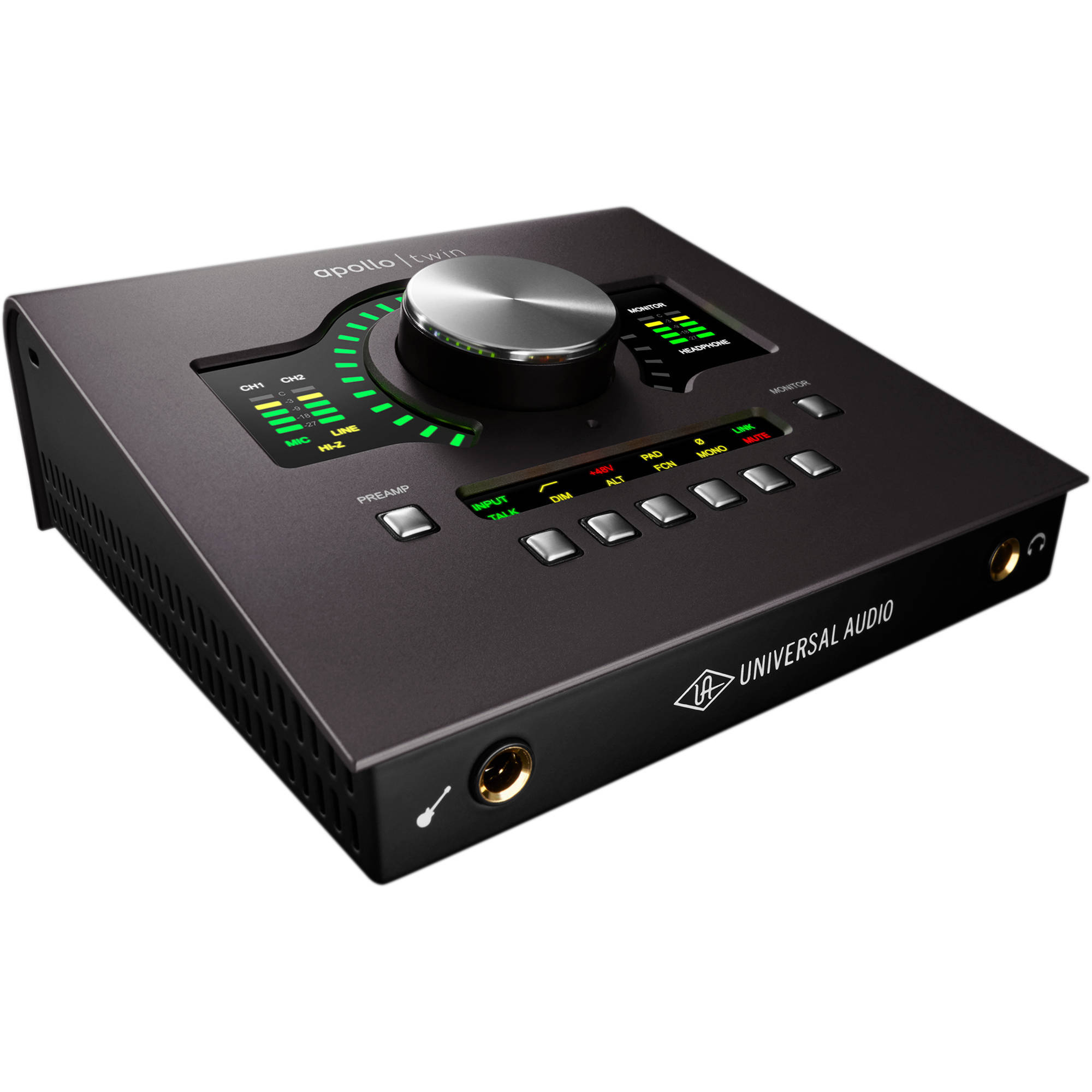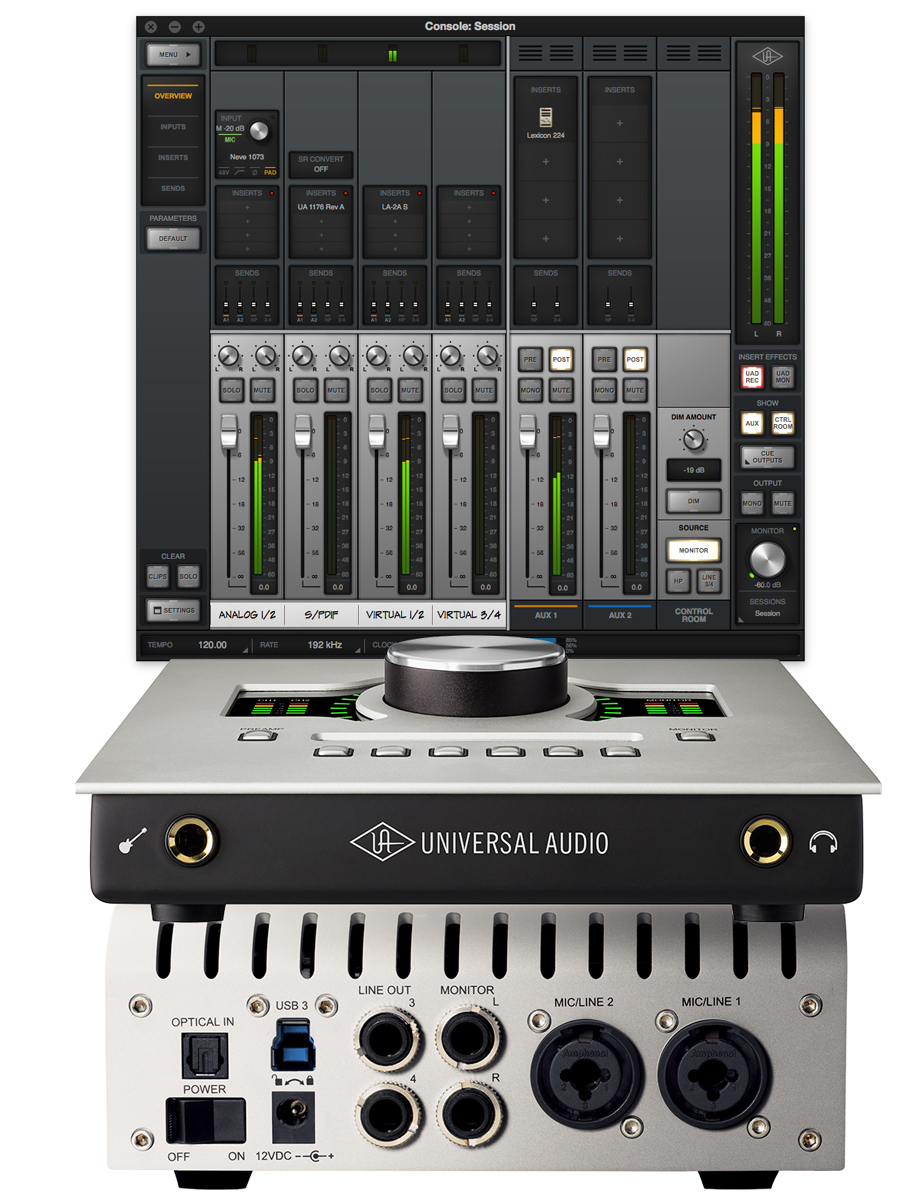If you have a number of audio interfaces on your Mac then you might find yourself either switching between them for Pro Tools sessions, or even wondering if you can use the power of all of them at the same time.
- Apollo Twin X offers up to 10 x 6 simultaneous input/output channels. Thanks to Apollo Expanded software, users of any Thunderbolt-equipped Apollo audio interfaces can combine up to four Apollos and six total UAD-2 devices — adding I/O and DSP as your studio grows. Apollo Twin X makes the perfect intelligent desktop controller for a full.
- I have a 2015 mac book pro and i just bought the apollo twin. Everytime i try to download the UAD software i get a 'driver not installed correctly'.
With its class-leading resolution and Realtime UAD Processing, Apollo Twin USB sets a new standard for desktop music production. This 2x6 USB 3 interface for Windows allows you to record with near-zero latency through the full range of UAD Powered Plug-Ins — ingeniously merging classic analog tones with cutting-edge features.
Using the Aggregate Device option in the Audio MIDI setup window on your Mac you can create flexible input and output setups for any audio application on your Mac.
Create An Aggregate Device In Audio MIDI Setup
To create a new Aggregate Device on the Mac simply open the Audio MIDI Setup application and then use the drop down menu in the bottom left of the window. Choose ‘Create Aggregate Device.’

You will then be presented with a list of all available audio interfaces. Simply tick the ones you want to use, in this example we are using an Apollo Twin connected to a 4-71-D via ADAT and a PreSonus StudioLive 16.0.2.
One thing you need to make sure is that of is that one interface is the master clock source and that all other audio interfaces in the aggregated set-up are running at the same clock speed. Once create our set-up looks like the image shown below.
click to enlarge
As you can see we now have a possible 36 inputs and 28 outputs available to us. Remember when using Pro Tools a maximum of 32 inputs is available, this will not be the case on other DAWs.


Setting Up The I/O In Pro Tools
To make sure Pro Tools can ‘see’ all the available I/O you need to go to the ‘Setup’ menu and select ‘I/O’ You’ll see the image shown below.
Click to enlarge
The fastest way to get all the I/O set-up is to delete all the inputs then click default and repeat this process in both output and bus tabs too. You should now have all the I/O available to you.
Selecting The Inputs And Output In Pro Tools
Now when you create new tracks in Pro Tools you will have all the inputs and outputs available for use. See below.
Pro Tools Inputs
Summary
This is a cool way of handling multiple interfaces without going through the pain of relaunching Pro Tools or for getting lots of I/O from a number of interfaces. One such scenario may be wanting to track a guitar via the Apollo with effects but using an Apogee Ensemble as you main interface. Or tracking guitars via Eleven Rack and whilst using an Apollo as you main interface.
Download Apollo Twin Driver For Mac
In some cases the Mac will let you mix the protocol, so in this scenario we’ve got a Thunderbolt and a FireWire interface running as an aggregate device. Unfortunately you can’t do this with Pro Tools | HD interfaces.

UAD SOFTWARE v9.14for Apollo & UAD Accelerators
UAD software is not compatible with mobile devices. Please download this software from your Mac or PC.

Note: Only registered users can download UAD software.
Please log in or create an account.
Note: Not qualified with Apple M1 Silicon. Learn More.
Additional UA Software Downloads
UAFX Pedals|OX Amp Top BoxNEW in this version
- API® Preamp with Unison technology
- Updated API® Vision Channel Strip Collection
- Updated dbx® 160 Compressor/Limiter
- Retina graphics for select UAD plug-ins on Mac
LUNA v1.1.8 Softwarefor Thunderbolt-equipped Macs
LUNA software is not compatible with mobile devices. Please download this software from your Mac.
Note: Only registered users can download LUNA software.
Please log in or create an account.
Note: Not qualified with Apple M1 Silicon. Learn More.
Learn More